Empower Your Brain’s
Healing Potential
after a Stroke
MeRT (Magnetic e-Resonance Therapy)
is a breakthrough treatment for
post-stroke symptoms.
It’s non-invasive, drug-free,
and can be performed either with
or after other stroke therapies
to help you heal faster.
MeRT: Personalized and Cutting-Edge Treatment for Stroke Recovery
Stroke recovery can be a long and arduous process, depending on the severity of the stroke. The weakness, numbness, pain, balance problems, or other after-effects can make you feel frustrated, depressed, and isolated.
That’s why it’s so important to do everything you can to help your brain recover. To help you, we deliver a breakthrough treatment to improve brain communication and function: MeRT.
MeRT stands for Magnetic e-Resonance Therapy. It’s a specialized use of TMS (transcranial magnetic stimulation). We tailor treatment to your exact situation and your unique brain using well-established medical testing, including qEEG brain analysis (brain mapping).
MeRT is drug-free and non-invasive, and we can perform this treatment with or after other stroke rehabilitation therapies. By optimizing your brain function with MeRT, we can help you heal faster* after a stroke — and get back to living a wonderful life.
* Results are based on active and strict observation of our regimens. Results may vary based on the individual user and are not guaranteed.

Learn More About MeRT for Stroke Recovery
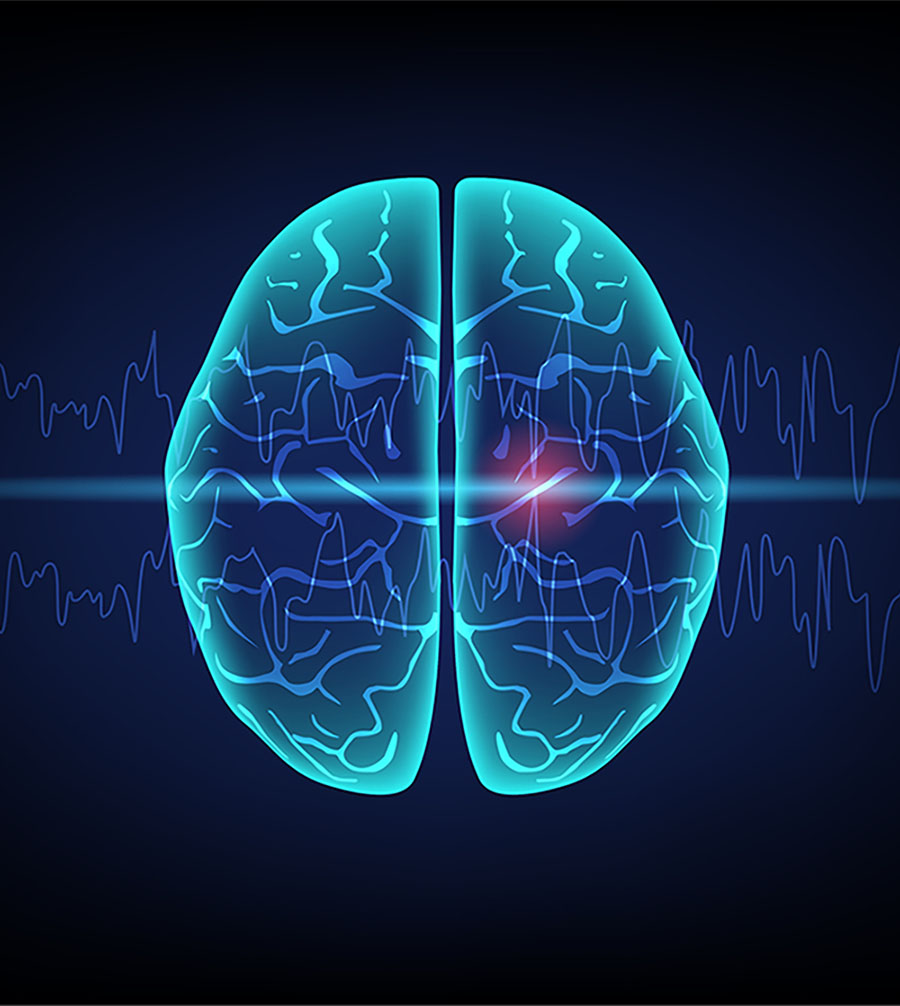
Unleash the Power of Neuroplasticity for Faster Stroke Recovery
When a stroke occurs, some brain cells are damaged, while others will die. In the days or weeks following a stroke, the brain works to repair the injured brain cells and remove the dead brain cells.
At this point, the brain works to restructure and repair the damaged area by changing the connections in the brain. This process is known as neuroplasticity.
Neuroplasticity of the brain is a key reason why MeRT treatment can be so helpful in stroke recovery. MeRT can’t repair areas of the brain where the brain cells have died, but it can help the brain create new pathways around the injured area. In this way, MeRT can help your brain to do what it naturally wants to do, so it can heal.
How a Stroke Affects the Brain and Body
A stroke interrupts or reduces blood flow to an area of the brain. This prevents brain tissue from getting oxygen and nutrients. The effects of a stroke will depend both on the location of the stroke and how much brain tissue was affected.
Types of stroke include:
- Ischemic Stroke happens when a blood clot obstructs a blood vessel in the brain and occurs in 87% of stroke patients.
- Hemorrhagic Stroke occurs when weakened blood vessels rupture and bleed into the surrounding tissues. This most often results from high blood pressure.
- TIA (Transient Ischemic Stroke) is also called a “mini-stroke” and is caused by a temporary clot in the brain.
- Cryptogenic Stroke is a stroke from an undetermined cause.
- Brain Stem Stroke occurs in the stem of the brain, can affect both sides of the body, and may leave someone unable to speak or move below the neck.
The brain controls every function in the human body, so many areas can be affected, either temporarily or permanently. Recovery can take weeks to years, depending on how severe the stroke was. However, the after-effects of stroke can be helped immensely by rehabilitation and therapy.
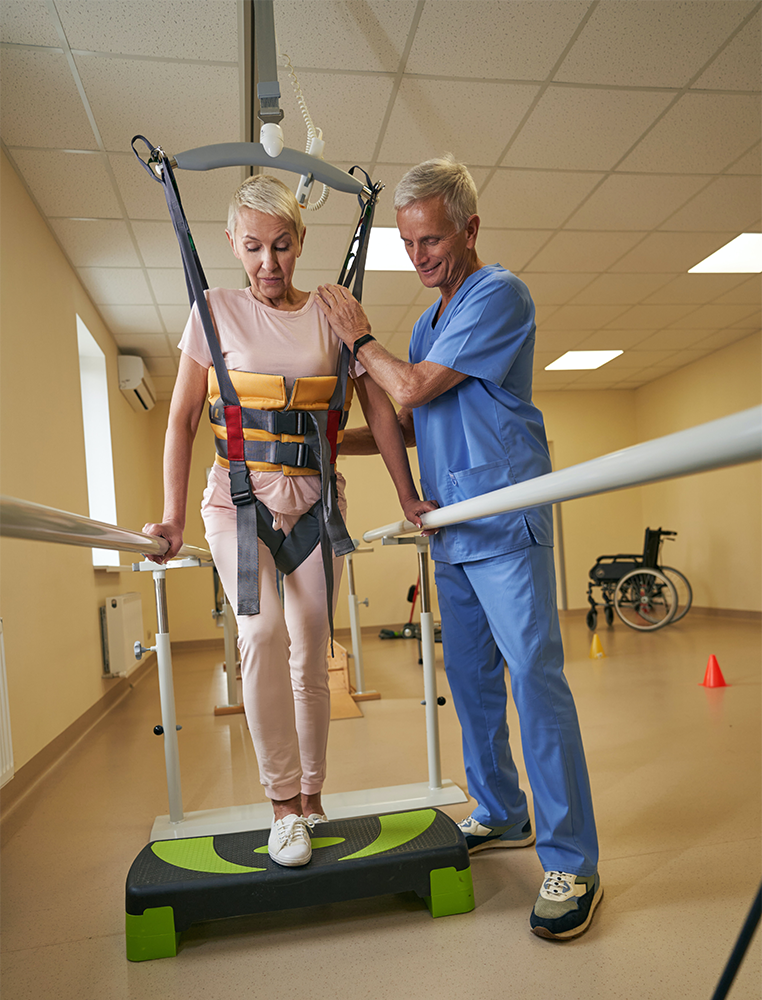

Post-Stroke Symptoms
After a stroke, individuals may experience a wide range of symptoms which can vary depending on the location and extent of the brain damage. However, some of the most common post-stroke symptoms include:
- Weakness or paralysis on one side of the body
- Communication difficulties — speaking, reading, or writing
- Cognitive impairments such as problems with memory, attention, and problem-solving
- Sensory disturbances — numbness or tingling in body parts or changes in touch, temperature, or pain perception
- Fatigue and loss of energy
- Emotional changes such as mood swings, depression, anxiety, and irritability
- Visual impairments — decreased vision, blurred vision, or difficulty with depth perception
- Swallowing difficulties
Along with other stroke rehabilitation therapies, MeRT can help reduce these after-stroke symptoms to improve your quality of life.
The Steps of MeRT Treatment for Stroke Recovery
Your first step to determine if MeRT is the right treatment for you is a call to our New Patient Coordinator. She can answer any questions you have about the treatment, protocols, cost, and payment options. Then, once you decide to move forward, we will set up your first two appointments, for testing and consultation. Each of these appointments will last 45 minutes to an hour. After this, you will have a two-week assessment period where the actual procedure and monitoring take place.
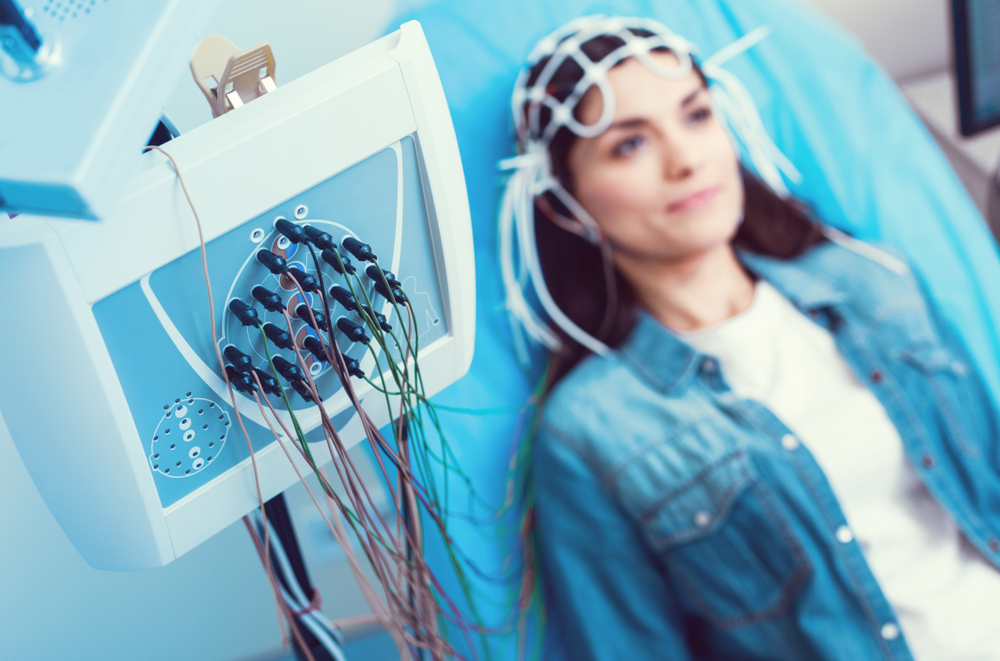
1. Testing
On your first appointment, we perform the qEEG and ECG/EKG. These tests are simple and painless and done right in our office. For the EEG, we place a cap on your head to measure the electrical activity in your brain and map out any areas not performing as they should. For the EKG, we attach a simple electrode to your chest to record the heart’s electrical signals and measure the brain/heart coherence.
Once we complete the tests, our team will carefully analyze the results. Based on this analysis, we develop a treatment plan customized to your specific condition and schedule your assessment period of treatment.
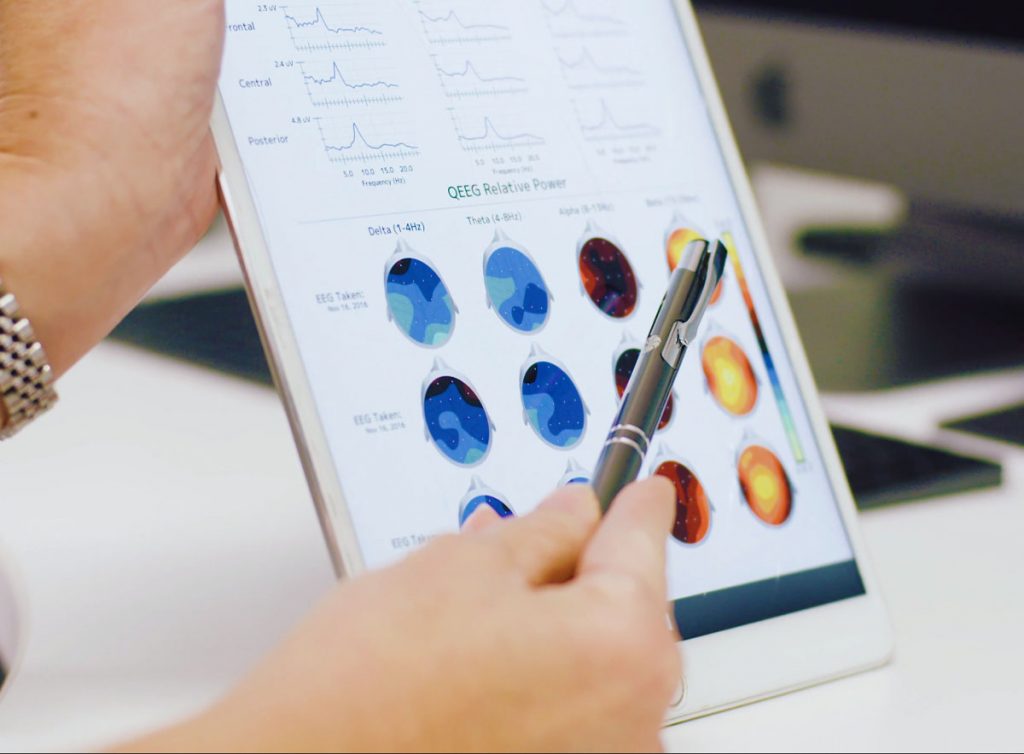
2. Consultation
Your second appointment, after your qEEG/EKG, is a one-on-one consultation. You can do this either in person or virtually from the comfort of your home. We will discuss your test results and treatment protocols, answer any questions you may have, and let you know more about what to expect during your assessment period of treatment.
Should you choose to go ahead with the assessment period, the cost of the qEEG and consultation will go toward the assessment period pricing.
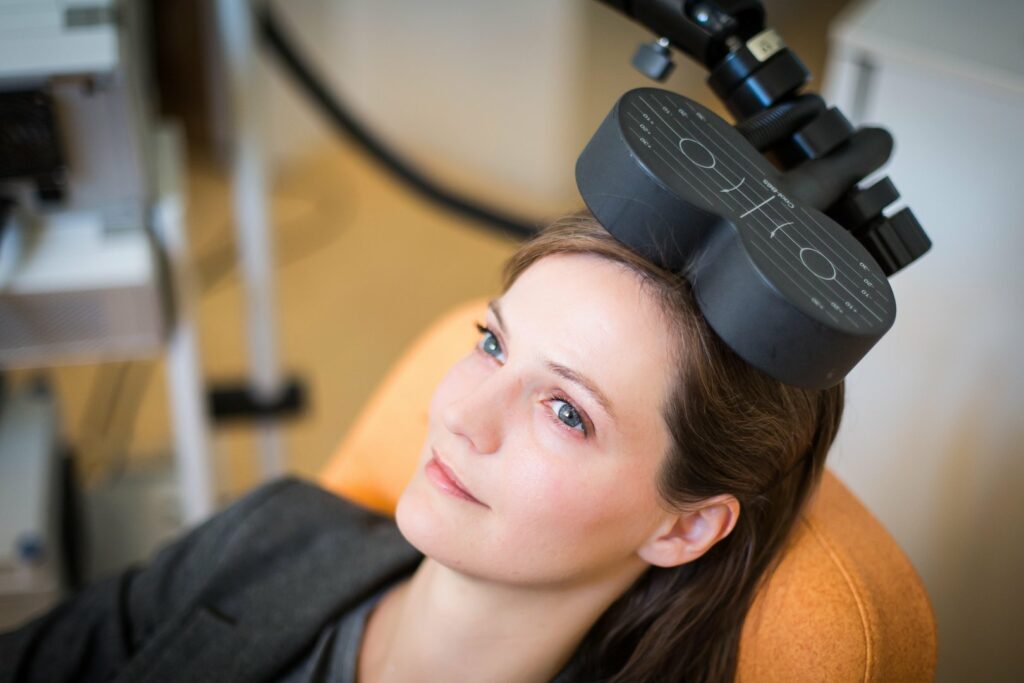
3. Assessment Period
In the two-week assessment period, we will perform a short course of treatment followed by a new EEG to see how you are responding. The first week of treatment will last for five days, Monday through Friday. The second week of treatment will last for four days, Monday through Thursday, followed by new testing on Friday.
We determine progress based on the new EEG results compared to the initial one done and symptom improvements.
If there is a positive response to treatment during the assessment period, you will have likely noticed some improvements starting to take place. At that point, we will schedule additional MeRT treatment in two-week intervals.
At the end of every two weeks, we will perform a qEEG/EKG to monitor your progress, and you will then have a consultation to confirm that changes are still showing on the testing. Most conditions treated with MeRT provide noticeable and long-lasting results after six weeks of treatment. However, each patient is different, and your results may vary.
Questions About MeRT? Contact Our New Patient Coordinator
We understand that you may be going through a lot of difficulty with your post-stroke symptoms. We also know that you may have many questions about whether MeRT is the right treatment.
This is not a light decision, and we want to make it as easy as possible for you to get the information you need. Our New Patient Coordinator is here to do just that.
She’ll answer all your questions, listen to your concerns, explain costs, and put your mind at ease. She can also assist you in getting scheduled should you decide to move forward with treatment.
Learn More About MeRT for Stroke Recovery

Insurance Coverage and Payment Options

We are considered out of network and cannot file insurance on your behalf. We can, however, provide you with the appropriate paperwork at the end of your treatment, which you can then submit to your insurance company for potential reimbursement.
Currently, rTMS is FDA-cleared for Depression and OCD (Obsessive Compulsive Disorder.) Treatment for all other conditions is currently considered “off-label.” For non-FDA-approved treatment, it is not likely that insurance will provide reimbursement for our protocols.
Some patients have reported that they have been able to receive some reimbursement for EEGs or clinical evaluations, but this depends on their health coverage. Medicare patients have reported that their coverage provides no reimbursement for MeRT.
Credit Options
We take all major credit cards, including Visa, MasterCard, American Express, and Discover. You may also want to look into Care Credit as an option. Care Credit is a credit card that can cover medical expenses and services, and they typically offer zero-interest financing for 12 months. When you apply at the Care Credit website, they will usually let you know promptly if approval has been granted.
Contact Us
For more information or to speak with our New Patient Coordinator, please fill in the information below.